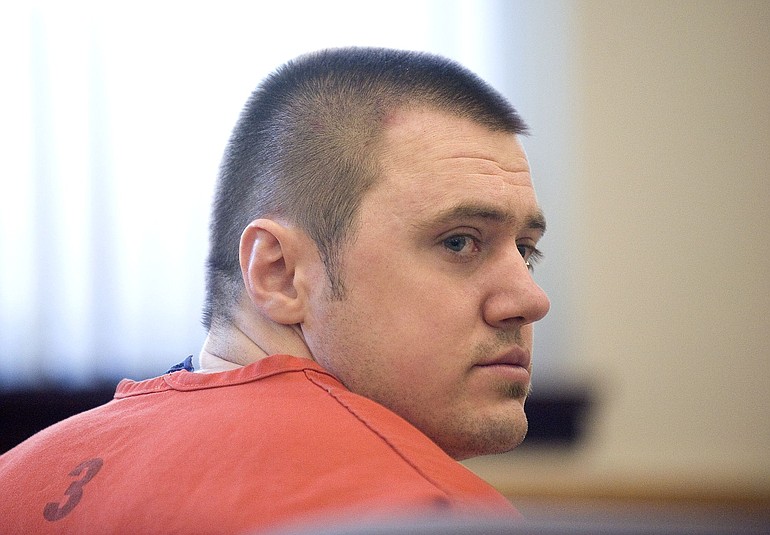Despite being pressed for answers by emotional family members of a slain Battle Ground man, Veniamin V. Tasmaly was mum at his sentencing hearing.
As family members of 24-year-old Curtis Dunn filed to the front of the courtroom Thursday afternoon and pleaded with the defendant to take responsibility and explain a 2009 fatal beating, Tasmaly showed no emotion. He looked straight forward, occasionally dropping his head when he heard the word “murder.”
Initially charged with second-degree murder and facing a potential prison term of 10 to 18 years, Tasmaly pleaded guilty Feb. 21 to second-degree manslaughter.
The Battle Ground man was sentenced Thursday to four years in prison.
“Our family does not believe that he intended for what happened that night,” Dunn’s mother, Valerie Smith, told the judge. “But our family also believes that the truth needs to come out.”
But when asked by Clark County Superior Court Judge Diane Woolard if he wished to talk, Tasmaly declined.
It was the last chance for the 28-year-old to shed light on a fatal fight that puzzled investigators and prosecutors for a year and a half.
He had entered a Newton plea, a type of guilty plea that only admits the prosecution had sufficient evidence to prove its case. The plea preserved Tasmaly’s right to not speak.
Clark County Prosecutor Tony Golik said the men were strangers and there was no known motive. They met by chance early on the morning of April 12, 2009, when Dunn stepped outside his house in the 200 block of Southwest 19th Avenue in Battle Ground to smoke a cigarette.
Tasmaly, who had been walking to his car parked down the road, argued with Dunn and punched him once in the jaw. Dunn fell backward and hit his head on the ground. Golik said the medical examiner concluded Dunn died from brain bleeding caused by the fall.
Golik said there was no evidence of an intentional killing.
Even Tasmaly’s attorney, Steven Thayer, expressed perplexity, saying there were several holes in the case.
“There was no blood or DNA transfer. (Dunn) first said he had been hit by a car. Then, he said he had been hit by a woman with her fist,” Thayer said. “Whatever really happened, a life has been lost.”
Dunn’s family members and friends packed the courtroom. Those who wished to speak formed a line, with nearly a dozen people addressing the judge before sentencing.
There was a theme in what the family members said: Four years in prison was too little time, and they didn’t believe that Tasmaly was remorseful.
“He’s not admitting guilt. He’s trying to get a lesser sentence,” said Roy Dunn, Curtis Dunn’s uncle. “What kind of person hurts Curtis that bad and leaves the scene?”
The victim’s cousin, Nicole Dunn, struck the same tone when she spoke. She said that Tasmaly should have stayed at the scene after the fight, while Dunn was injured but still alive. He died the next day in the hospital.
Nicole Dunn said her family has never received an apology.
“Mr. Tasmaly did not do a single thing to right this wrong,” she said.
Family members also called upon the judge to order the deportation of Tasmaly, a Russian immigrant, following the completion of his sentence. Woolard said she had no discretion in those matters, explaining that a federal court has the authority to deport a convicted felon. It wasn’t immediately known Thursday whether Tasmaly would be deported.
After the hearing, Golik addressed the family’s concern over the plea deal. He said he understood their frustration, but added that Dunn’s immediate family members had approved the deal after lengthy discussions and that they understood the prosecution’s limitations.
“I feel horrible having the family members come up and say, ‘Only four years?'” Golik said.
“The main issue was that I’m very confident a jury would convict him of manslaughter” and not murder, he said. “There was absolutely no evidence Tasmaly wanted to kill Curtis Dunn. It was a classic manslaughter case.”
Laura McVicker: 360-735-4516 or laura.mcvicker@columbian.com.



